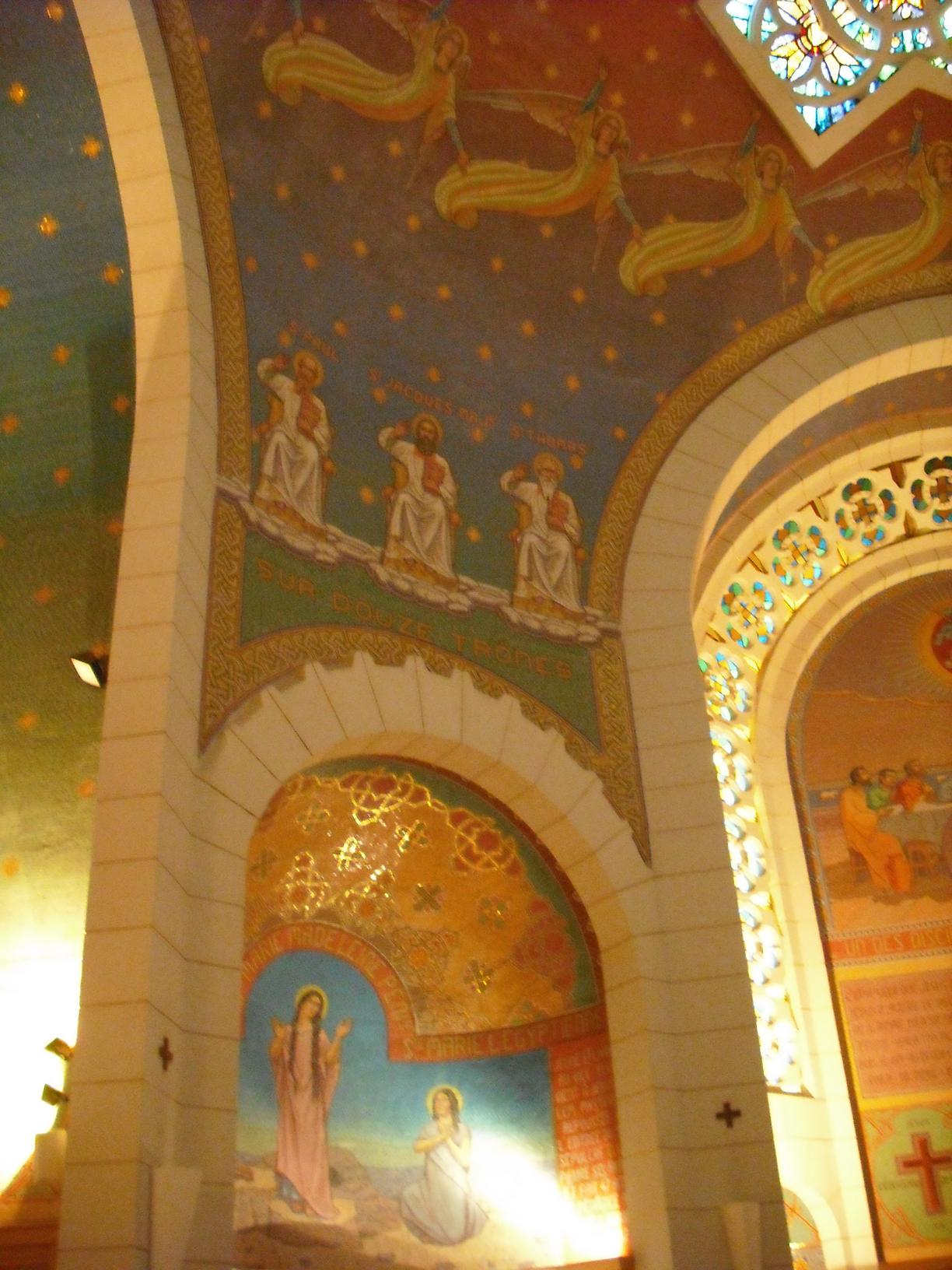QT 13/11/2025 Thu. Jonah 2 “Turning Toward the Holy Temple” “转向圣殿”

QT 13/11/2025 Thu. Jonah 2 “Turning Toward the Holy Temple”
READ http://www.esv.org/jonah2
Jonah 2:4, 7 (ESV)
“Then I said, ‘I am driven away from your sight; yet I shall again look upon your holy temple.’”
“When my life was fainting away, I remembered the LORD, and my prayer came to you, into your holy temple.”
(1) The Cry of a Distant Heart
Jonah’s words rise from the depths—literally from the belly of the fish, but spiritually from a place of alienation. His disobedience had led him far from the presence of the LORD. He confesses, “I am driven away from your sight.”
Yet even in that moment, Jonah’s faith flickers. He remembers that though he feels far, God’s temple remains the place where mercy dwells. The temple represented the meeting point between sinful people and a holy God—where sacrifice, intercession, and forgiveness were found.
When Jonah says, “I shall again look upon your holy temple,” he is not describing a change in location but a change in direction. His heart turns once more toward the presence of God.
(2) Remembering the LORD in the Deep
Verse 7 shows the turning point: “When my life was fainting away, I remembered the LORD.”
Jonah’s memory of God rekindles hope. His prayer—though offered from the sea—reaches the very throne of heaven: “My prayer came to you, into your holy temple.”
This is the miracle of grace: when we turn toward God in repentance, even from the lowest depths, He hears. His temple—symbol of His dwelling and mercy—is not limited by geography. Wherever His people remember Him, He is near (cf. Psalm 34:18).
(3) Christ: The Greater Temple
For believers today, we no longer turn toward a building in Jerusalem but toward a Person—Jesus Christ. He declared, “Destroy this temple, and in three days I will raise it up” (John 2:19). Christ Himself is now the true and living Temple: the meeting place of God and man.
When we are overwhelmed, distant, or disobedient, the call remains: turn toward the Lord Jesus. He is the place where mercy is found, where prayers are heard, and where grace restores.
Jonah’s faint prayer foreshadows what every believer learns: God never stops hearing the cries of a repentant heart.
(4) Reflection / Application
(a) Where are you tempted to believe you’ve gone “too far” from God’s sight?
(b) What does it look like for you today to “look again toward His holy temple”?
(c) How does knowing Christ as the true Temple give you confidence in prayer and restoration?
Prayer
Lord, even when I feel driven away by my failures, help me to remember You. Thank You that through Jesus, Your true Temple, my prayers rise before Your throne. Turn my heart toward You again, that I may worship and find mercy in Your presence. In Jesus’ name. Amen.
QT 13/11/2025 星期四. 约拿书 2 “转向圣殿”
阅读 http://m.bbintl.org/bible/ncv/jon/2/
约拿书 2:4, 7
4 我说:‘我虽从你眼前被赶逐,我仍要仰望你的圣殿。’
7 当我心灵疲弱时,我就思念耶和华;我的祷告直达你面前,进入你的圣殿。
(1) 遥远心灵的呼喊
约拿的话语从深渊升起——字面上是从鱼腹,属灵上则是从疏离之地。他的悖逆使他远离耶和华的同在。他承认:“我虽从你眼前被赶逐 。”
然而即便在此时,约拿的信心仍存微光。他记得纵然感觉遥远,神的殿仍是慈爱居所。圣殿象征着罪人与圣洁神相遇的所在——献祭、代求与赦免皆在此处实现。
当约拿宣告 “我仍要仰望你的圣殿” 时,他描述的并非位置的改变,而是方向的转变。他的心再次转向上帝的同在。
(2) 深渊中的记念
第7节揭示了转折点:“当我心灵疲弱时,我就思念耶和华。”
约拿对神的记念重燃希望。他的祷告——纵然来自深海——仍直达天庭宝座:“我的祷告直达你面前,进入你的圣殿。”
这就是恩典的奇迹:当我们悔改归向神时,纵然身处最低谷,祂仍垂听。祂的殿宇——象征祂的居所与怜悯——不受地域限制。凡祂的子民记念祂之处,祂就临近(参《诗篇》34:18)。
(3) 基督:更伟大的殿宇
今日信徒不再转向耶路撒冷的建筑,而是转向一位位格——耶稣基督。祂曾宣告:“耶稣回答:“你们拆毁这殿,我三天之内要把它建造起来。”(约翰福音2:19)。基督自己如今就是真实活泼的殿宇:神与人相遇的所在。
当我们陷入绝望、疏离或悖逆时,呼召依然存在:转向主耶稣。祂是寻得怜悯之处,是祷告蒙应允之所,更是恩典恢复之地。
约拿微弱的祷告预示着每位信徒的领悟:上帝永不停止倾听悔改之心的呼求。
(4) 反思/应用
(a) 你何时曾因自以为“离上帝太远”而动摇信心?
(b) 今日“再次仰望祂的圣殿”对你而言意味着什么?
(c) 认识基督是真殿,如何使你在祷告与复兴中得着确据?
祷告
主啊,纵使失败感使我心生逃避,求你助我仍记念你。感谢你借着耶稣——你的真殿——使我的祷告升到你宝座前。求你再次转向我心,使我得以在你面前敬拜并寻得怜悯。奉主耶稣的名求。阿们。


